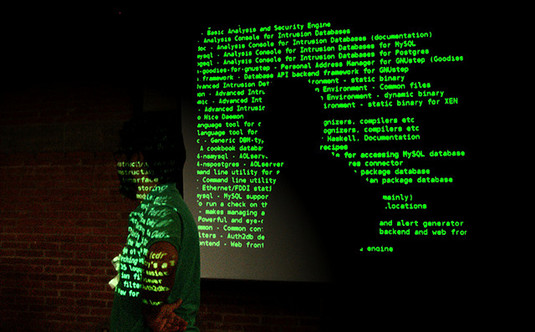This article is more than 1 year old
No distro diva drama here: Penguinista favourite Debian turns 20
How solid, stocky Linux babe kept relationship 'open' but stayed true to you
What is this 'Debian' of which you speak?

Debian users' meeting at the "Quenalona" Free Software Talks in Zimatlan de Alvarez, Oaxaca, Mexico.
Photo by phylevn, licensed under CC 2.0
Then the newbie embarks on a progression down the "rabbithole" of free software, one that is traced in some detail in E Gabriella Coleman's Coding Freedom, a book about Debian hackers and free software more generally.
Criticisms range from the ideological – the inclusion of non-free software, for example – to the more practical, for example the fact that some distros are slow to give their code back to the projects that form their core.
At some point the Linux newcomer, fast morphing into an intermediate or even advanced user, decides to install these source distros they've heard about on a spare partition or perhaps just a virtual machine. And the progression continues further down the rabbithole until finally a new Debian user is born.
But there is often parallel transformation that happens under the surface of something as seemingly trivial as switching distros. Somewhere along the way, the curious user morphs not just into a more advanced technical user, but a more involved user: a user who isn't in it just for the software anymore, but is part of a philosophically different approach to software. And more involved users are exactly the people that make Debian Debian.
And, after two decades, it’s a good point to take stock and ask where Debian is heading.
What comes next?
To understand what the next 20 years of Debian will look like, you need look no further than the core document that has guided these first 20 years: the legendary Debian Social Contract. It's a kind of Catcher in the Rye for the free software movement, with the power to galvanise young developers in the spirit of something bigger than just making cool software.
With Debian you know where you stand. Essentially you – dear reader - are Debian. To put another way, you can be as much a part of Debian as you would like; there are no barriers to entry and no requirements for use.
The same cannot be said of something like Ubuntu, Mark Shuttleworth’s distro based on Debian. Open and welcoming though Ubuntu may be, you are not Ubuntu. You are a user of Ubuntu.
It's a subtle distinction, perhaps, but it's also part of the contract: you know where you stand. And that applies to high-level philosophical ideals about free software as well as everyday stuff like release dates, which Debian doesn't have. Debian has rough targets, but Debian releases are released when they are deemed ready and not before, even if that means targets are missed and new software arrives later than intended (this is part of why Debian offers a rolling distro, for those who'd prefer not to wait).
There are downsides to Debian's approach. The openness that comes with Debian's contract means that internal disputes and developer differences can be very loud and very public. Sometimes the divisiveness spills out into the larger Debian community in unpleasant ways.
But, messy though it may sometimes be, the openness has nevertheless served Debian well and it has kept the whole thing rolling. Look at what happened when the Project’s organisers bought into Shuttleworth’s plan for a grand alignment between release schedules in 2009, and Deb devs got in a flap over being tied to Canonical’s roadmap.
Twenty years ago Murdock ended his manifesto with the warning that "the time has come to concentrate on the future of Linux rather than on the destructive goal of enriching oneself at the expense of the entire Linux community and its future". That warning feels just as relevant today, when the lure of app stores and all manner of tightly controlled development encroaches on Linux from all sides. ®
